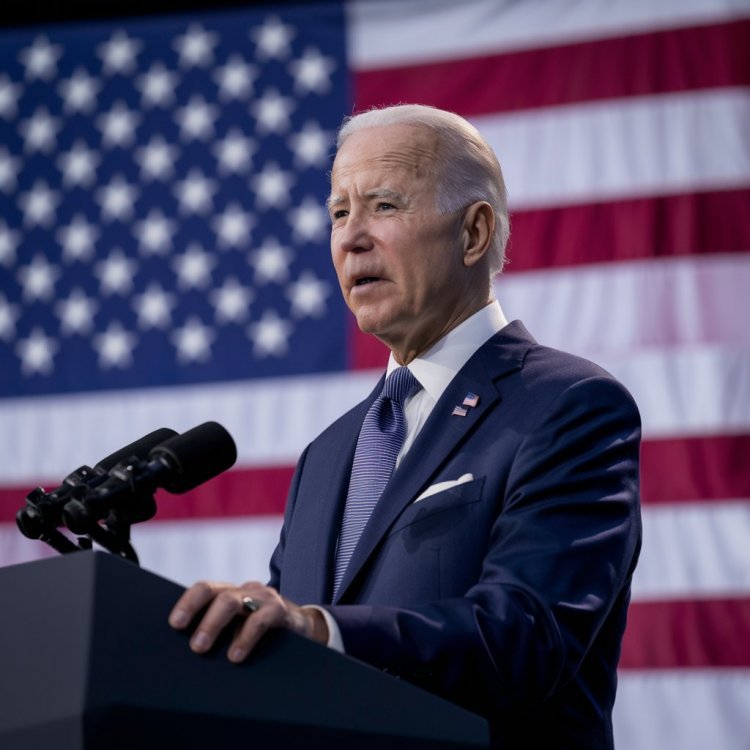Biden's Presidency: Accomplishments, Challenges, and the Importance of Reelection
Explore the significant accomplishments of Biden's presidency, including the American Rescue Plan and the infrastructure bill, alongside the challenges of high inflation and low approval ratings. Understand the division within the Democratic Party and the importance of Biden's reelection for the party's future and the country's stability.

Biden's Presidency: Accomplishments and Challenges
Joe Biden's presidency, which began in January 2021, has been marked by significant legislative achievements and considerable challenges. As the 46th president of the United States, Biden inherited a country grappling with the COVID-19 pandemic, economic instability, and deep political divisions. His administration's actions, including the American Rescue Plan and the infrastructure bill, have aimed to address these issues. However, high inflation and low approval ratings have presented ongoing hurdles. Additionally, internal divisions within the Democratic Party, particularly among progressives and centrists, complicate his presidency. This article delves into these aspects and explores why Biden's reelection is deemed crucial for the Democratic Party's future and the country's stability.
Significant Accomplishments
The American Rescue Plan
One of Biden's most notable achievements is the American Rescue Plan, signed into law in March 2021. This $1.9 trillion stimulus package was designed to combat the economic fallout from the COVID-19 pandemic. It provided direct financial aid to millions of Americans, extended unemployment benefits, and funded vaccine distribution. The plan also included significant investments in public health, education, and housing. These measures were intended to provide immediate relief to struggling families and stimulate economic recovery. The American Rescue Plan has been credited with reducing poverty, decreasing food insecurity, and boosting economic growth during the early months of Biden's presidency.
The Infrastructure Bill
Another major legislative victory for Biden is the Infrastructure Investment and Jobs Act, commonly referred to as the infrastructure bill. Passed in November 2021, this $1.2 trillion bipartisan bill aims to revitalize America's aging infrastructure. It allocates funds for repairing roads and bridges, improving public transportation, expanding broadband internet access, and investing in clean energy. The infrastructure bill is expected to create millions of jobs, modernize the country's infrastructure, and enhance long-term economic competitiveness. Biden's ability to garner bipartisan support for this bill showcased his commitment to working across the aisle and addressing critical national needs.
Ongoing Challenges
High Inflation
Despite these accomplishments, Biden's presidency has faced significant challenges, chief among them being high inflation. Inflation rates in the United States have surged to levels not seen in decades, driven by supply chain disruptions, labor shortages, and rising consumer demand. The high cost of goods and services has eroded the purchasing power of American families and sparked widespread concern. The Biden administration has implemented various measures to address inflation, such as releasing oil from the Strategic Petroleum Reserve and promoting competitive practices in key industries. However, these efforts have had limited impact, and inflation remains a pressing issue.
Low Approval Ratings
Biden's approval ratings have also been a source of concern for his administration. Despite the legislative successes, public dissatisfaction with the handling of inflation, the withdrawal from Afghanistan, and other issues has led to declining approval ratings. Polls indicate that many Americans are skeptical of the administration's ability to manage economic and foreign policy challenges effectively. Low approval ratings can undermine a president's ability to enact their agenda and maintain political support, making it imperative for Biden to address the root causes of public discontent.
Division Within the Democratic Party
Progressive Dissatisfaction
The Democratic Party itself is divided, with some progressives expressing dissatisfaction with Biden's centrist approach. Progressives argue that Biden has not gone far enough in addressing issues such as climate change, healthcare reform, and income inequality. They advocate for more ambitious policies, such as the Green New Deal and Medicare for All, which they believe are necessary to tackle systemic problems. This rift within the party has led to tensions and difficulties in passing legislation, as seen in the debates over the Build Back Better Act.
Centrist Approach
Biden, a longtime centrist, has sought to balance the demands of progressives with the need to appeal to moderate and independent voters. His administration has prioritized achievable goals and pragmatic solutions, aiming to secure bipartisan support where possible. This approach has resulted in significant legislative wins, but it has also left some progressive supporters feeling alienated. Navigating this internal division is a delicate task that requires careful negotiation and coalition-building.
The Importance of Biden's Reelection
Democratic Party's Future
Biden's reelection is crucial for the future of the Democratic Party. A second term would provide an opportunity to solidify and expand upon the achievements of his first term, ensuring continued progress on key issues such as infrastructure, climate change, and economic recovery. Additionally, Biden's reelection would offer stability and continuity at a time of significant national and global challenges. The Democratic Party's ability to unite behind a common vision and candidate will be essential for securing electoral success and advancing its policy agenda.
Country's Stability
Beyond party politics, Biden's reelection is vital for the country's stability. The United States faces numerous challenges, including geopolitical tensions, economic uncertainties, and ongoing social divisions. A stable and effective government is necessary to navigate these complexities and promote national unity. Biden's experience and pragmatic approach can provide the leadership needed to address pressing issues and guide the country through turbulent times.
Conclusion
Joe Biden's presidency has been marked by significant accomplishments, such as the American Rescue Plan and the infrastructure bill, as well as substantial challenges, including high inflation and low approval ratings. The division within the Democratic Party further complicates his tenure, with progressives seeking more ambitious policies and centrists advocating for pragmatic solutions. Despite these hurdles, Biden's reelection is crucial for the Democratic Party's future and the country's stability. As the nation prepares for the next presidential election, the outcome will have profound implications for the direction of U.S. policy and governance.
What's Your Reaction?




















